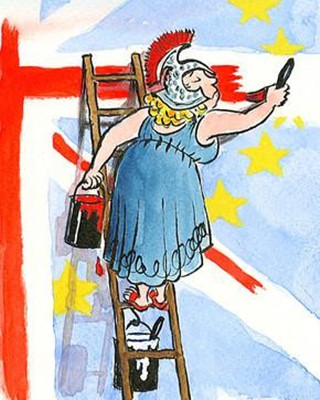Eurosceptics
BRUSSELS-BASHING is never out of season in Britain, but the past few weeks have been unusually strenuous. On December 16th Theresa May, the home secretary, proposed capping the number of EU migrants entering Britain. On January 13th David Cameron, the prime minister, received a letter signed by 95 Tory MPs demanding a parliamentary right of veto over every piece of EU legislation. The next day Business for Britain, a Eurosceptic group, argued that only firms that export to other EU countries should be subject to common regulations.

Such proposals contradict the fundamental principles of the EU single market, which relies on free movement of people, common rules and a degree of pooled sovereignty. Undermine these and it will collapse, as other MPs, diplomats and Britain's reformist allies in the EU have warned. One Tory MP, close to despair, shakes his head at his colleagues' lack of realism. Do they really think they will get what they want?
The answer, in some cases at least, is no. Outists seem to be adopting the old Marxist ploy of the transitional demand: requests that are likely to remain unfulfilled but help to expose the limitations of the prevailing order. The equivalent, for those agitating for Britain to leave the EU, is to call for the country to cherry-pick bits of EU membership—and, on failing, hail its ghastliness. Business for Britain, for example, accepts that Britain's partners will not agree to “unilateral opt-outs for British industries”—yet demands a series of such exemptions. Senior Tory sources speculate that Ms May too knows that her immigration proposals would require Britain to leave the EU.
Polls suggest that although voters are hostile to European immigration and rules, they are wary of renouncing the single market entirely. Mr Cameron is committed to renegotiating Britain's EU membership, then putting it to a referendum. Though some Eurosceptic backbenchers scorn that plan in private, only the most rebellious are willing to do so publicly. But by demanding impossible changes, those who want to leave can simultaneously name-check the prime minister's plan, indicate their dissent and nudge ordinary Britons towards outism. This may be particularly useful for Tories positioning themselves for the next leadership contest. “Can Theresa May lead us out of the European Union?” asked one tabloid, helpfully, in response to the home secretary's thoughts on immigration.
Political leaders who want Britain to stay in the union must perform a delicate balancing act in response. Pooh-poohing outlandish demands would look patronising and unambitious. But echoing them would spook business. On January 15th Ford, a carmaker, firmly advised against leaving the union. The same day George Osborne mounted the pro-membership tightrope. In a good speech, the chancellor of the exchequer warned that Britain could leave the EU but prescribed mostly Europe-wide reforms to improve matters. It was a deft display. As the outist demands become noisier—and their impossibility more evident—he and Mr Cameron will have to perform it many more times.
译文属译生译世












